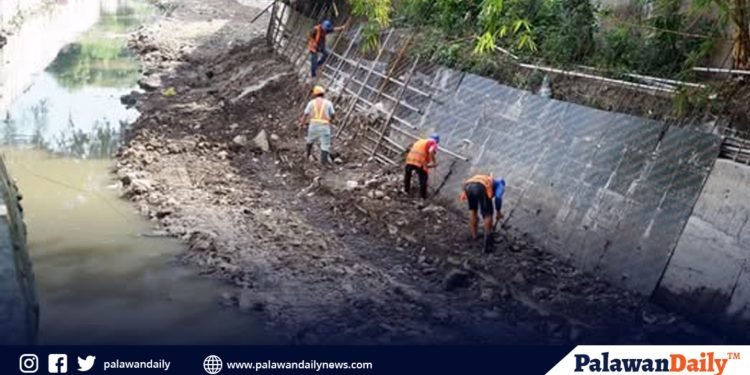The city assessor of Puerto Princesa, Engr. Joven Baluyut has reminded the public not to occupy or construct structures in natural body of flowing of water but instead protect it to prevent flooding, emphasizing that “all waters of the Philippines belongs to the State.”
He cited that the Presidential Decree No. 1067 also known as the Water Code of the Philippines, a 49-year old law explicitly establishes that all waters, including those on private lands, are owned by the State.
Engr. Baluyut reacted because creeks within the city has been occupied by private owners, while some creeks has been filled with earth materials to pave way for the constructing of building.
He also surmised on why natural body of flowing water such as creeks has been included in the subdivision plans and issued with a land title by the national government. As a result, the city government this time, find it challenging to implement flood control projects since it need to secure the approval of the landowners before they can implement a drainage or flood control project.
“Bakit kaya na titituluhan at naging pribado ang mga existing creeks na dapat pag mamay- ari ito ng government yong lahat ng creeks na dapat dadaanan ng flood control at proposed drainage project ng City Government?” Baluyut asked.
He also observed that some government agencies may have erred in the issuance of development permits considering the proponent’s non-compliance of setback or easement also required by PD 1067.
He said that some landowners in Barangay San Jose did not gave consent, therefore the city government funded proposed flood control and drainage project has been stalled.
The situation faced by creeks in Puerto Princesa has caught the attention of Senator Erwin Tulfo who recently visited here and called a meeting with local officials and local government functionaries. He has also called for a nationwide investigation into the causes of massive flooding not only in Puerto Princesa and Palawan but also in other affected areas in the country.
Tulfo said that this is to strengthen existing environmental laws and improve enforcement mechanisms.
“Despite the existing legal prohibitions, violations continue, and illegal structures remain permitted in these waterways. No one — not even powerful individuals or businesses — can place private interest above public safety, ecological balance, and the rule of law,” he said.
Protecting creeks, being a natural body of flowing water are crucial for flood prevention. By preventing their degradation, people can mitigate the severity of floods and reduce the risk of its potential threats to people’s lives and damage to properties.


















